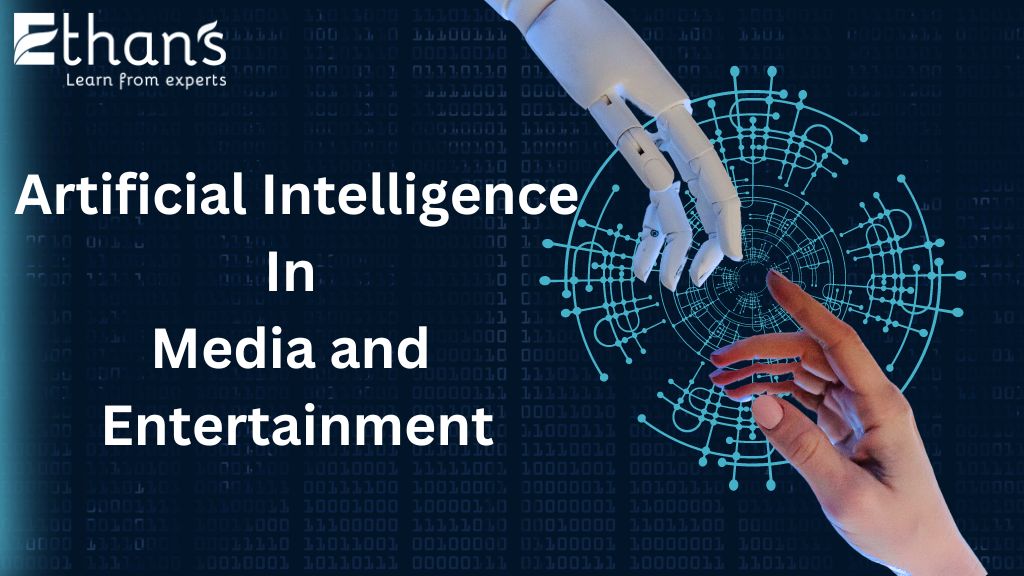In today’s rapidly evolving digital landscape, the influence of artificial intelligence (AI) is becoming increasingly apparent across various industries. One sector where AI has made significant strides is the media and entertainment industry. From personalized content recommendations to enhanced production processes, AI is revolutionizing the way we consume and create media.
Future Perspective of Artificial Intelligence
AI-Powered Content Curation
In an era of information overload, users often struggle to find relevant and engaging content. AI algorithms are changing this landscape by providing personalized content recommendations based on user preferences and behavior. Streaming platforms like Netflix and Spotify leverage AI to analyze user data, including viewing patterns, genre preferences, and social interactions, to deliver tailor-made suggestions. This enables users to discover new content and enhances their overall viewing experience.
Enhanced Production Processes
AI is streamlining and optimizing various aspects of media production. For instance, in film and video production, AI-powered tools assist in tasks such as script analysis, scene segmentation, and automated editing. These technologies analyze vast amounts of data, including facial expressions, audio cues, and storytelling structures, to provide valuable insights to filmmakers, enabling them to make informed decisions and streamline the production process.
Real-time Data Analysis
AI enables media companies to gather real-time data and extract valuable insights from it. By utilizing natural language processing and machine learning algorithms, AI systems can analyze social media trends, audience sentiment, and engagement metrics. This data-driven approach helps media organizations understand their audience better, adapt their content strategies, and create more targeted campaigns. Additionally, AI-powered chatbots and virtual assistants can provide personalized recommendations and interact with users, improving customer engagement and satisfaction.
Improved User Experience
AI is transforming the user experience in the media and entertainment industries. For example, voice assistants like Amazon’s Alexa and Apple’s Siri enable users to navigate and control media devices with simple voice commands. AI-powered chatbots provide instant customer support, resolving queries and issues efficiently. Virtual reality (VR) and augmented reality (AR) technologies offer immersive experiences, enhancing gaming, live events, and storytelling. These advancements contribute to a more engaging and interactive user experience.
Automated Content Generation
AI is also making waves in content creation itself. Natural language generation (NLG) algorithms can automatically generate written content, such as news articles, reports, and product descriptions. AI-powered video editing tools can transform raw footage into professionally edited videos, reducing time and costs for content creators. While these automated processes are still in their early stages, they hold great potential for improving efficiency and productivity in the media and entertainment industries.
Despite the numerous benefits that AI brings to the media and entertainment sectors, challenges and concerns persist. Privacy and data security are critical considerations, as AI relies on vast amounts of user data. Ensuring ethical use of AI is also crucial, as algorithms may perpetuate biases or manipulate information. Additionally, the displacement of human jobs due to automation raises questions about the future of the workforce in these industries.
However, despite the challenges, AI’s potential in the media and entertainment industries is vast. As technology continues to advance, AI will play an increasingly integral role in content creation, curation, and distribution. Media organizations that embrace AI-powered solutions will gain a competitive edge by delivering personalized experiences, optimizing production processes, and staying ahead of evolving consumer expectations.
Time to Break
artificial intelligence is revolutionizing the media and entertainment industries, transforming the way content is curated, produced, and consumed. With personalized recommendations, enhanced production processes, real-time data analysis, improved user experiences, and automated content generation, AI offers tremendous opportunities for growth and innovation

